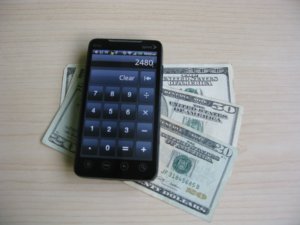
Banks offer higher interest rates for certificate of deposit accounts (CDs) than they do for traditional savings accounts because the customer is agreeing to park their money at the bank for a set period of time. During this time period, the bank can lend out the money in the form of loans that earn fees for the bank, allowing them to provide a portion of the amount earned to account holders in the form of interest. When the money is withdrawn from the account early, the bank has less money available to lend out and loses the ability to earn money on the funds. This is why you are charged a penalty fee when you withdraw money from a CD early.
It is important to leave the money in the CD for the entire term if you do not want to suffer significant losses. The primary reason that many people invest in CDs is to have a safe, interest bearing option for storing their money so they do not have to worry potentially losing part of their money. Paying a considerable penalty for withdrawing money from a CD early goes against the entire reason for investing in a CD at all.
What Is The Penalty?
Banks are allowed to set their own fees when it comes to early withdrawals from CDs held at their institutions, so the fees charged can vary widely from bank to bank. The penalty at one bank could be as little as 6 months’ worth of interest, or about $18.48 for a $10,000 withdrawal at today’s national average yield of 0.37 percent. The penalty at another could be as much as 4 percent of the amount withdrawn, for a total of $400. Make sure that you read all of the terms associated with the CD before depositing your money so you know how an early withdrawal penalty will be assessed and how much it will be.
When you withdraw money from a CD early, you will not just lose the interest that you would have earned. You could also face significant fines that could reduce the amount of your principal. Many banking institutions have rules in place that will allow them to confiscate a portion of the principal deposited if the account holder withdraws money from the account early. A portion of the principal is generally confiscated as part of the penalty fee when there is not enough accrued interest in the account to cover the charge. Credit unions typically operate in a similar fashion.
It is important to consider the cost angle when deciding whether to pull money out of a CD before it has matured. Use a calculator to calculate the financial impact that the early withdrawal penalty will have on your funds. Many experts expect these fees to rise even further in the future when interest rates begin to increase.
